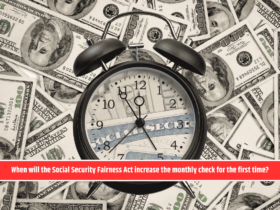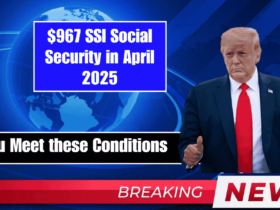Social Security retirement benefits arrive on different days of the month, depending on when a beneficiary started receiving payments and their birth date. Knowing the exact schedule helps retirees plan their finances effectively.
For March 2025, the payment dates vary, and certain retirees may receive their checks sooner than others. Those with birthdays between the 11th and 20th of any month may be eligible for the next payment, provided they meet all necessary requirements.
March 2025 Social Security Payment Schedule
The Social Security Administration (SSA) follows a structured schedule for distributing retirement payments. The payment date is determined by the beneficiary’s birth date and when they started receiving benefits:
| Group | Birth Date | Payment Date (March 2025) |
|---|---|---|
| Group 1 | Before May 1997 | March 3 |
| Group 2 | 1st – 10th of any month | March 12 |
| Group 3 | 11th – 20th of any month | March 19 |
| Group 4 | 21st – 31st of any month | March 26 |
Retirees in Group 3, whose birthdays fall between the 11th and 20th of any month, will receive their payments on March 19, 2025. However, those who receive their benefits by paper check may experience a slight delay.
Who Will Receive the New Retirement Payment?
The March 19 payment will go to Group 3 retirees who meet the following conditions:
- They began receiving Social Security benefits after May 1997.
- Their birthday falls between the 11th and 20th of any month.
Additionally, those who have Direct Deposit set up will receive the payment immediately on the scheduled date. Beneficiaries who receive paper checks may experience a delay of a few days before their payment arrives in the mail.
How Much Will Retirees Receive in March 2025?
The amount a retiree receives is based on their work history and earnings record. The maximum possible benefit in March 2025 is $5,180, but most retirees will receive a lower amount.
Typical Social Security retirement payments range from $1,600 to $3,500 per month, depending on factors such as:
- Lifetime earnings and Social Security taxes paid
- Age at retirement (early retirement reduces benefits, while delaying retirement increases them)
- Cost-of-Living Adjustments (COLA), which impact annual benefit increases
For those who were already receiving Social Security benefits before 2025, their March payment amount will likely remain the same as previous months, unless COLA adjustments or other changes apply.
Key Takeaways
- The March 19, 2025, payment is for retirees who began receiving benefits after May 1997 and have birthdays between the 11th and 20th of any month.
- Payments are sent via Direct Deposit immediately or arrive a few days later by check.
- The maximum benefit in March 2025 is $5,180, with most retirees receiving between $1,600 and $3,500.
Staying informed about payment schedules helps retirees plan their monthly budget and avoid unexpected financial disruptions. Setting up Direct Deposit is the fastest way to receive Social Security benefits without delays.
FAQs
1. When will I receive my Social Security payment in March 2025?
Your payment date depends on your birth date and when you started receiving benefits. If your birthday falls between the 11th and 20th of any month, your payment is scheduled for March 19, 2025.
2. How can I get my Social Security payment faster?
Setting up Direct Deposit ensures that your payment arrives in your bank account on the exact scheduled date. If you receive a paper check, it may take a few extra days to arrive.
3. Will my Social Security benefit amount change in March 2025?
Your benefit amount will generally remain the same unless there have been Cost-of-Living Adjustments (COLA) or other changes affecting your payment.
4. What is the maximum Social Security payment in 2025?
The maximum possible Social Security retirement benefit in 2025 is $5,180 per month, but most retirees receive between $1,600 and $3,500.
5. What happens if my payment is delayed?
If your payment does not arrive on the scheduled date, wait a few days before contacting the Social Security Administration (SSA) or your bank. If you receive paper checks, mail delays may be the cause.
















Leave a Reply